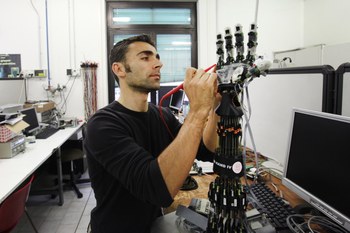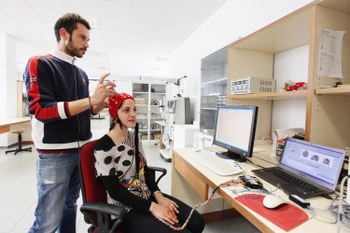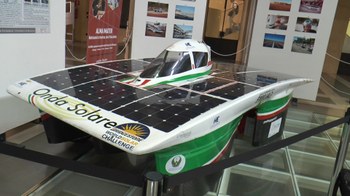Research

Automatic Control and Operations Research
The scientific areas involved in this Curriculum are systems and control engineering and Operations Research. These are fundamental subjects for the Master Courses in Management and Information Engineering (Electronics, Computer Science, Telecommunications, Biomedical, Automation). Moreover, they are also present in many other Master Courses in Engineering and also in Business Administration and Science.
The unifying methodological aspect is the Systems Approach, which provides a very powerful viewpoint to face most problems in modern engineering as well as in many other applied sectors.
The basic subjects (system theory, control theory, optimization, estimation methods, filtering and identification, simulation) provide very useful tools to deal with and solve in a formal and general way complex problems that are often faced by special-purpose procedures, sometimes of empirical type.
Research topics
Leggi dettagli
Bioengineering
The Bioengineering curriculum fosters the development of advanced interdisciplinary skills, spanning engineering, medical and biological sciences, mathematics, physics, and computer science, to tackle complex challenges in the life sciences using innovative tools and solutions.
This curriculum covers a broad range of research topics, integrating electronic, information, and industrial aspects of bioengineering.
There are strong connections between the various research themes, and often, training and research activities are conducted at the intersection of multiple fields. Each research project focuses on a specific goal, such as enhancing understanding of physio-pathological processes, advancing diagnostic and therapeutic techniques, improving assistive and rehabilitation technologies, and optimizing healthcare management.
Collaboration with the other two curricula—facilitated by shared courses and seminars—encourages the exchange of methodologies, promotes cultural interaction, and provides the multidisciplinary training essential for addressing bioengineering challenges effectively.
Research topics
Leggi dettagli
Electrical Engineering
The Electrical Engineering curriculum offers comprehensive scientific and technical training, providing a strong foundation in electrical engineering, as well as the ability to innovate in technology and design. PhD students are expected to apply analytical tools and advanced knowledge from the electrical, electromechanical, and energy sectors to other leading engineering fields.
The academic areas covered in this curriculum include Electrotechnics, Converters, Electrical Machines and Drives, Power Systems and Technologies, and Electrical and Electronic Measurements.